Britain’s Armed Forces are the pride of our nation. From the beaches of Normandy to the mountains of Afghanistan, our servicemen and women have stood firm in defence of our freedoms.
Yet, in an age of rapidly evolving threats – from drone swarms and cyber-attacks to grey zone aggression and information warfare – the way we fight has changed. Despite this, some aspects of military life remain tied to a world that no longer exists.
That is why the Strategic Defence Review 2025 rightly acknowledges the need for a rethink of the rigid medical rules that have, for too long, blocked too many capable people from serving their country.
Let’s be clear: this is not about lowering standards. It’s about updating them. It’s about adopting a pragmatic approach and asking a simple question – can the individual in front of us do the job?
At present, thousands of potential recruits are ruled out before they even get started, simply because of pre-existing conditions that have little or no bearing on the roles they could perform. Meanwhile, serving personnel who pick up manageable conditions can find themselves discharged, even when they still have valuable skills to offer.
During my service as a British Army Medical Officer, I often met individuals eager to serve but barred from doing so. Conditions such as Raynaud’s phenomenon, a history of splenectomy, or substandard eyesight would rightly be cause for caution in front-line combat units – but should not be automatic disqualifiers for remote roles such as drone operation, cyber defence, or intelligence analysis. The blanket exclusion of individuals based on conditions that are irrelevant to specific roles fails to reflect the diversity and complexity of today’s operational landscape.
In the past, this may have made sense. For decades, Britain has fielded one of the most professional and principled armed forces in the world. But professionalism must not be confused with rigidity. If we are to match talent to task, our personnel policies must evolve in step with the character of modern warfare.
Ukraine’s defence forces, under existential threat, have adapted with pragmatism. They have assigned people based on what they can do, not what they can’t. They have brought in civilians with specialist skills – cyber experts, drone operators, engineers, linguists – and put them to work where they are needed most. Many would not have met the old-fashioned standards we still cling to in Britain. But they are making a difference on the battlefield. That’s what counts.
We need to take the same approach. Because today’s conflicts are fought not just with rifles and tanks, but with code, intelligence, and complex logistics. That means we need people who are technically skilled, strategically minded, and digitally fluent – irrespective of whether they’ve got a perfect medical record.
Our allies have already started moving in this direction. The US military has widened the list of conditions it considers waiverable. Israel operates a tiered system, where medical expectations are tailored to the role. This is just smart policy. If someone is flying a drone from a secure facility in the UK, they don’t need to run a six-minute mile. They need focus, skill, and a steady hand.
And yet, here in Britain, we are turning away thousands of potential recruits – many of whom want nothing more than to serve their country. It is not only a waste of talent; it is a strategic own goal.
The numbers speak for themselves. In 2022–23, over 1,500 regular personnel were medically discharged – that equates to roughly four per day. At a time when recruitment targets are being missed, this is unsustainable. It is time to stop shutting the door on those who are ready, willing, and able.
So, what needs to change?
First, the Ministry of Defence should review the current medical standards in detail – identifying what’s essential across the board, what’s specific to certain roles, and what’s just plain outdated.
Second, we should test a more flexible approach in areas like cyber, intelligence, and engineering. That means letting people with the right skills in, even if they don’t tick every box on a medical form.
Third, we must rethink how we treat those already serving. If a soldier develops a condition that stops them from continuing in their current role, that should not be the end of the road. Instead, we should actively look to move them across to another service role where they can still contribute. It is common sense, and it keeps valuable experience in uniform.
Fourth, recruitment needs a refresh. We must highlight the full range of roles available – not just front-line infantry, but the many other trades and specialisms that make modern defence work. If people see themselves reflected in the image of our Armed Forces, more will come forward.
This approach must apply equally to our Reserve Forces. Doctors, engineers, IT professionals, and linguists who perform at the highest levels in their civilian lives should not be excluded from part-time service due to rigid standards designed for full-time regulars. If they are fit enough to do those jobs Monday to Friday, we should be finding ways for them to serve at weekends – not putting barriers in their way.
This is about making the Whole Force concept a reality: Regulars, Reservists, civilians, and contractors working together, backed by a medical model that reflects their differing roles and responsibilities.
Some will say this is risky. But risk lies in doing nothing. The world is getting more dangerous, not less. Our adversaries are moving quickly. If we do not modernise, we fall behind.
This is not about making our Armed Forces softer. It’s about making them smarter. It’s about having the right people in the right jobs, no matter what’s on their medical history.
If someone wants to serve their country, and they have the skills we need, then we should find a place for them. That’s not weakness – it’s strength. It’s the strength of a nation that understands how to harness every ounce of talent in defence of its freedom.
In the 21st century, victory won’t go to the biggest army – it will go to the smartest. Britain must be ready. Reforming our medical standards is a vital step in that fight.
Dr Neil Shastri-Hurst MP is the Member of Parliament for Solihull West & Shirley, and Parliamentary Private Secretary to the Shadow Health and Social Care Team. A former trauma surgeon, Medical Officer in the Royal Army Medical Corps, and barrister, he brings frontline experience in medicine, the armed forces, and law to Westminster.





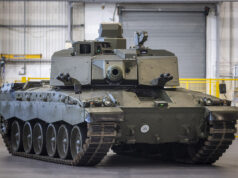

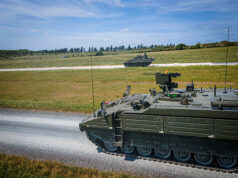

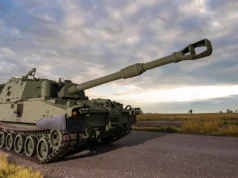

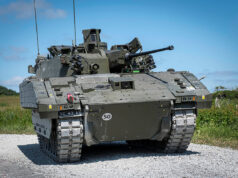
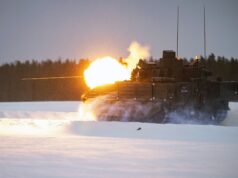

What the author fails to understand is that everyone in the Army is first and foremost a combat soldier. In times of situational need everyone is expected to pick up his or her weapon and use it. Case in point, the Glorious Glosters. Every clerk, cook and driver ended up in the trenches fighting off the Chinese. Similarly, it is standard military doctrine these days for SF to attack behind the enemies lines. Mr. IT Clerk cannot guarantee he is safe 20-30 miles behind the front line.
The same argument, by extension, goes to the civilianisation of a lot the tail.
Historically the tail had basic combat training.
Except, when have we expected medics, doctors and nurses to carry weapons?
And a bod in a bunker flying drones or doing what IT bods do are not going to take rifles and aim them at an incoming hypersonic missiles, or you know something I don’t?
Said IT bod or drone pilot could be sent to somewhere like Cypress (right next door to todays sh*t show), Afghanistan, Bahrain, Africa (BATUK) etc. Plus, a drone pilot is going to be RAF so that doesn’t really count. I worked with a whole bunch of guys from the Intelligence Corp which I think is a good comparison. They were, and are in the field a lot more than folks would realize. I get what the author is trying to say, but you can’t always guarantee they will be safe in a bunker all their career. If they want to expand GCHQ, fine, but that’s not the Army. IMO if you can’t ever deploy then you need to look at your career choices.
The British Army has it own drones and consequently its own pilots. It doesn’t depend on the RAF for this capability.
Sorry, Spartan. I totally disagree with you. In front-line units and where one is expected to be deployed at a “ Shorabak/Bastion” style base, I cannot see why a person who is not A1 in a support-only role shouldn’t be there. Of course, subject to their speciality, they would do an RFT. You wouldn’t put someone with severe myopia at the end of an L7A2 in a tower. I was there on the night of 14th September 2014 at the burning man, and the fault then was not every tower being manned, not the quality of those there at the time.
I work in a dept with someone who one would have called Army Barmy, yet he wasn’t allowed in. He has a PhD in computer science and is easily the most intelligent person I have ever known, both in the service and my current tasking. Had the Army had a place for him and his ilk who just wanted to be in it, I am sure a few years would have been stolen in the development of, say, mobile facial recognition systems, allowing troops forward deployed to have essential intelligence and the ability to lift the local Terry and disrupt their activities. That could have all been done under service conditions at home. You don’t need to be able to march, score highly in the range or do a 14 miler to design and write such a system. The same goes for a whole host of other jobs. It took 2 1/2 men in WWII to get a soldier onto the front line. Today, teeth to tail is just over 5. By turning the thousands down, you lose out on people I feel could significantly contribute to the country.
Here’s a list: Henry Moseley(Army) , Jimmy Diamond (RSF), Sir Bernard Lovell (Royal Navy), Sir Christopher Cockerell (Royal Navy), Sir William Mills (RAF), Sir Robert Watson-Watt. They all applied to join one service or another. Watson-Watt was turned down by the RFC/RAF due to his sight. Without him, the Battle of Britain would have been lost. The list is a long who’s-who of British scientific giants who were turned down by the British military for service only to make contributions to the power of many tens of thousands of men in their place.
The kind of drones the Army uses don’t require pilots unless I am missing something. They have operators and they don’t sit in a bunker. The biggest they had IIRC was the watchkeeper and that’s just been canned.
Ex-Royal Marine – You don’t set your standards to accommodate the exceptions. You make exceptions to the standards when the situation demands. What’s more, I don’t disagree that people like that cannot be of use to the Armed Forces, I just question that they should be in it. Especially during “peace time”. I also question the need for someone to be developing facial recognition software while in the Army, that’s what civilians are for.
Spartan, the army got its first drone in the early ’70s – the Canadair CL-89 Midge. Years before the RAF!
The army doesn’t call them drone pilots, but that’s what they do.
To be fair, though, using the example of drone pilot; do they need to have the same vision standards as, say, fighter pilots?
Just as an example, when I was a teenager I wanted to be a Typhoon pilot. I wear glasses so by the time I was 14/15 I realised it would never happen. My vision is spot-on, 6/6 when corrected with glasses. Fair enough, in the cockpit of a Typhoon if you’re pulling high-G manoeuvers, if your glasses fall off then you’re buggered, but drone pilots don’t have that problem, so people with good eyesight when corrected with glasses or contacts could fly drones as their glasses/contacts aren’t going to go flying off – so that’s an example of something that could definitely be relaxed.
DB: seriously?
Doctors, Nurses, and ESPECIALLY Medics carry weapons.
I’m getting old!
I mean they where carrying weapons at least as far back as the Falklands, and for sure regularly by the 2003 invasion or Iraq so… yeah
Lack of edit function is missing. Also pretty sure even as far back as WW1 Medics and Doctors where required to qualify in musketry and pistol shooting annually as they might be required to carry weapons on campaign against “non civilized types”. I don’t think there was ever a blanket “Medics never carry weapons” position in the army.
There’s no reply to your later comments.
However, my question was ”Have we expected…” and yes, I’m wrong, a young female medic was awarded for her bravery in Afghanistan however, in my TA time, I only interacted with Medical branch at the Cambridge in Aldershot. My bad.
I’m not sure how you feel like I didn’t address “have we expected”?
Under the Geneva Conventions, medical staff are entitled to carry sidearms in order to protect themselves, patients in their care & medical supplies & facilities, but are not permitted to take part in aggressive action.
If they do so, they forfeit the additional protections they benefit from under the laws of war
I’m well aware of what Medics are and are not allowed to do (btw not limited to side arms). I’d invite you to think about what “defense of self and patient’s” means for a Medic in a 60 troop multiple. Or for a Nurse on a MERT unit picking casualties up from a hot CCP.
Eh!why do you think every soldier is issued a personal weapon and has to classify every year if they are not expected to use it?
Please see above.
Mr IT Clerk – whatever one of those is?
Get a grip. The point is a 7 year kid paralysed below the waist could do more damage to an enemy than the fittest soldier, in today’s world.
There are going to be different elements to a future military which could well encompass all ages and people with a range of medical conditions.
In theory there are very few people in the country who could not take an active part in the modern military. A knowledge of IT might actually be more relevant for most than a perfect medical by 1940’s standards.
Spartan, this man cannot be naiive. He was an officer in the RAMC. I was REME and our official motto was Arte et Marte – by skill and by fighting and our unofficial motto or strapline was ‘Soldier First, Tradesman Second.’
But I spent very little of my time in the field in a situation akin to an infantryman, carrying heavy loads and tabbling for miles.
Sure, everyone in the field irrespective of role or trade needs to be able to live in and survive in the field and fire their personal weapon (he was not advocating arms should only be held by the teeth arms!). But that has little to do with medical standards, the topic here.
I think this move is right. Surely the medical standard for an RAF pilot is different to that of an AirTraffic Controller? The Army should follow suit.
There is a need to differentiate between a medical standard that is suitable for the role and a fitness standard that is apropriate.
At last a sensible view on such things, i hope it helps retention etc. Combat units will not fall apart etc because of it they said that about women, gays, beards none had that effect its rubbish.
Something Ukraine has reminded us of also, is that 36 is an absurdly young cutoff. Fit men in their 50s are fighting off Russia. A 50 year old who is in shape is absolutely as capable as a young’un still. I’ve met old men fitter than me in my time, and I’m not unfit (I’m actually mid application). I’m 35 and I’m absolutely aiming to train hard, race easy.
The 36 cut off is generally more about VFM for the Army than the ability to actually preform it’s job.
Agreeing broadly with what Spartan said. Very few careers in the Army do actually have zero possibility of ending up on the front line. OMI’s in the course of their careers can often end up attached to patrols as HUMINT collect sources, or are embedded into certain CHQ’s (and CHQ’s are frontline) as advisors to coy commanders. Medics might spend part of their career in a DPHC unit, or working a store in a third line SQMS department, and then the next day get attached to a Company of Paras as a their medic. A nurse might be working in a Field Hospital, and then be operating in a ground MERT role on their next posting. RLC blanket stackers might be working in 104 Log brigade enabling theatre supply and then be running convoys through hostile territory in Helmand to resupply PB’s.
Can there be changes to the medical standards? For sure, there probably should be. But it needs to be based on the understanding that there are very few career streams in the army that have zero chance of operating on or near the front line.
One size fits all is a philosophy beloved by the lazy corporate types who don’t want to be called out on what a role actually entails, usually because they don’t know.
This initiative will require considerable knowledge and experience of what each role does require and what is exceptional. I just hope it’s done thoroughly and includes Intelligence, Space and Cyber where roles don’t seem to be anything like Infantry. The modern battlefield is so much more than the front line.
Literally adressed this in my OP. The list of Army roles that never have you deploying into combat are extremely few and far between.
Dern, there is no requirement for say a drone pilot to be on the same continent as the conflict let alone near the front lines. If you look at the conflict in Ukraine some of their best work has been done from a distance. This change is being made because you are eliminating some of the best people because they ‘might’ not be great at close quarter fighting. There is a danger here that we are not moving with the times and that could put us all in danger.
Mark,
Drone Pilots that sit on a different continent will be RAF not Army. Army Drone operators are in theatre assets, and being an Army Drone operator is a physically demanding job as you are routinely a high priority target for enemy fires and have to relocate frequently to mitigate the risk of your emissions being detected.
Not necessarily. I don’t think you are taking into account the massive shift in tech that is planned. You might be correct now but not in the future. There is shed loads of money going into the digital network which will make this happen I’m sure. We must be careful we are not restricting ourselves to what we have today but think about what is coming down the line.
I don’t think you are taking reality into account. If you want to fantasise about a future force structure in which the RAF cedes strategic air to the Army go right ahead, I’ll keep talking about the reality that we face that makes accepting non-deployable troops into the Army a nonstarter.
To be honest, the medical standards can be relaxed without risking people if they end up in combat.
For example: does a drone pilot need as good vision as a Typhoon or F-35 pilot? Pilots must have 6/6 eyesight without any correction. Understandable, as if you had glasses and they came off in the cockpit whilst you’re pulling a high-G manoeuvre then you’re buggered, but flying a drone on the ground, you don’t have that risk, so drone pilots’ standards could be relaxed to 6/6 corrected with glasses or contacts, rather than perfect vision without glasses.
And if you read the bit at the bottom of my comment you’ll see that I said that there is room for reform of the medical standards, it just needs to be cogniscant of the fact that, in the Army at least, everyone can end up on the front line at some point of their career, and the standards need to reflect that.
Interestingly Russia is essentially sending its over the hill middle-aged men to fight, with a report from Moscow that the average age of recruits there was now 50..
Russian is also specifically not sending its young national service recruits to fight, each year 160,000 are recruited and then a year later sent home, without going near Ukraine.
Its purposeful, as
1)it stops the Russian people from considering the war an imposition.. as only well paid volunteers go.. with a big golden handshake and death bonus paid to their families.
2) it’s essentially preserving the breeding part of the population.
3) it’s preserving the potential best population to fight a future war.
4) if your being even more cynical ( and I admit I a that sort of mind) it’s getting rid of your unproductive population just before they start to cost a fortune in healthcare..
It’s one on the reasons people are starting to get a bit worried.. once the annual conscription was considered a bit of a joke.. now it’s been increased and the training elements have gone up and Russia is using to create a reserve body of young men 19-31 who have had military training, that it refuses to burn up in Ukraine.. since 2022 the following have gone through conscription
2022 spring 134,000, autumn 120,000
2023 spring 130,000, autumn 147,000
2024 spring 150,000 autumn 133,000
2025 spring 160,000
That’s almost 1 million young men put through basic military training then sent home in about 3-4 years… a vast reserve force.
Russian meat grinder mentality.
Yep the brutal truth…
Even a deluded fantasist such as the killer of the crimlin must grasp the impact of population demographics and the impact of a hugely dangerous war that has been the cause of so many leaving to avoid conscription.
The corruption and incompetence has seen the collapse of education to the point that technology companies cannot recruit.
Aside from the propaganda value, that reserve army is mitigation of the risk of an actual not imagined conflict with NATO. Where they would get the equipment and operational readiness from is a mystery since the RF fighting army in Ukraine has neither. They’ve got donkeys.
The concern is he would happily put those men through the meat grinder and once the Ukraine conflict has finished he can reconstitute a fighting force.. in the end it’s not about winning or losing it’s about making sure the evil shit is deterred from war.. because any war with Russia will be catastrophic for Europe even the one we win..
Spartan, yes as you rightly say, every soldier needs to fight, and as ex REME with the motto “Arte et Marte” (by skill and by fighting), i understood that there might come a time when i would be required to engage directly with the enemy. However it seems ridiculous to exclude someone who has had childhood asthma from being in a certain role, based on a small possibility that they may need to fight like a full time infantryman. For my trade, in electronics, colour blindness was the real issue rather than bit of a whizzy cough.
Horses for courses, but madness to exclude people on the small chance that they may be required to do a task at some point in their career with such a low probability.
I am old enough to remember the cartoon in “Soldier” magazine showing REME throwing spanner’s as they went into battle, and the debate it caused at the time.
Mark, I am sure you recall the Gulf War incident when Sergeant Michael James Dowling, the REME Fitter Sergeant attached to C Squadron, 16th/5th QRL and commanding one of the two M548s, engaged an enemy tank. It sadly did not end well for him as he did not have an anti-tank weapon, and he was KIA. His SMG was little better than those spanners at taking out the enemy tank commander who was ‘head-out’ using his 12.7mm MG.
Graham, yes remember it well, and have seen the painting in the Mess to commemorate his brave action.
Sadly the issue was more about lack of suitable weaponary rather than him not been fully trained. We all know that the only weapons ever issued to the fitter sections were “personal” and then an LMG for the 430’s.
The closest we ever got was on an FTX, when during a repair to the Sqn ambulance ( hiding in the wood line) we managed to report taking out a couple of “advanced recce” CVRTs with 66 mms although they weren’t actually issued or scaled for us, even in the event of war. 😀
HAve to agree with the author in part with the MOD medical standards. Individuals considered unfit for some locations such as the Falklands or Middle East as they are operational yet suitable to go back to sea on Operational Warships which are certainly a more physically demanding enviroment. Where was the sense in that?
So yes a full overall of what is needed and lets stop the waste bith from within and those wanting to serve their country.
I do think a tiered approach makes sense. Those expected to be regularly on the front line (e.g. infantry) should obviously meet the highest standards, and be able to operate for long periods without the need for constant supplies of, for example, dermatitis medicines.
But for someone who is usually going to be deployed far behind the front lines, or would only be deployed to front lines in extremis or for very short periods, does barring that person from the military really help to protect everyone? Surely the benefits of having a keen volunteer who is good at their job, and unaffected in 99.9% of what they do by their condition, filling in a role that might otherwise be a vacancy (and easing pressure on undermanned units, improving the output of others); surely the benefits of that vastly outweigh the very slight risk that they might inadvertently end up in a position where their medical condition is compromising operational effectiveness?
I’m not saying we should be hiring severely disabled people, but minor conditions that don’t reduce day to day effectiveness; and don’t place a significant financial or logistical burden on the military, should surely be considered.
The problem is there are very few if any career paths in the Army that do not have people going to the front line. Individual PIDs might be far from the frontline, but troops move from PID to PID over their career, and as I pointed out above, most career streams involve moving back and forth between sharp end of the stick PIDs and Rear Echlon PIDs.
I’m sure there are huge benefits to that, but would it cause too much inflexibility to restrict some people to rear echelon PIDs? As long as it is made clear from the outset that their condition is career limiting, and other career paths are developed, I can see it being popular.
Maybe we should wait to see whether the current reforms are effective at increasing recruitment and retention to sufficient levels, before considering any need to further loosen medical standards.
But having some less strict fallback standards ready to implement in mass mobilisation circumstances would be a good contingency plan.
I don’t know if anyone has done the analysis, but it would be interesting to see what proportion of the general population would actually meet the current standards. There is concern among many that we are failing a relatively large proportion of current applications, who would be expected to be healthier on average than the general population.
It would cause serious issues around harmony balances and career management. If you have people that can only ever go into Rear Echelon pids it follows that some people will only ever go to front line PIDs. It affects the whole force, not just the person who is signing on to a limited career.
So lets take Medics as a perfect example; A medic might do a career serving at first 2-3 years in a Med Reg, which is a semi-rear echelon role, then they might go and do a posting as a Lance Corporal with a Para Battalion, they spend years on high readyness, and promote to Corporal. They then post into the Rangers, and spend years rapidly deploying to austere locations, being shelled, treating casualties, high tempo stuff. They then get their 2nd Corporal Posting and are now burned out, need a break, need to step back from the front-line to recover. Except they can’t because all the DPHC postings are filled by people who signed on with limited liability to only serve in those calm pids. Our high flying medic instead gets posted to 5 Rifles and goes to Cabrit on yet another tour and signs off because they can’t spend time with their family, or have a chance to settle down. I’m painting this example for Medics, but it pretty much applies to every trade in the army (some people seem to have some very weird ideas about career streams in the army in this thread).
I’ve said elsewhere in this thread that I agree that medical standards need reviewing for sure, but the idea that some people should be allowed in based on the idea that their job means they won’t see a front-line role is, for the army at least, rather spurious.
(Also just to add, yes even Infantry and Cavalry have rear Echlon PID’s that they rotate guys into for exactly this sort of reason, a Para can expect periods in their career where they are working a non-deployable role, eg as an Instructor at Brecon or Catterick as a Corporal, or a course manager as a Sergeant).
I see what you’re saying – all good points. If we don’t need to loosen standards to fill roles then let’s not do that for the reasons you have mentioned. I suppose it would be good to have the skeleton of a plan at least for a situation where we were in some sort of (hopefully short-term) wider mobilisation event, where we had to increase numbers very quickly and need to do that in a logical manner for maximum operational effectiveness.
about time- I’m blocked due to keratoconus – but with the new CXL treatment that rolled out in the 2010s- mine has been stable with no change for 15 years now and my eyesight meets standards.
Some real dinosaurs commenting on here. OBVIOUSLY it’s far better for the forces to be undermanned than be at full strength with people who have the skills needed in the modern world.